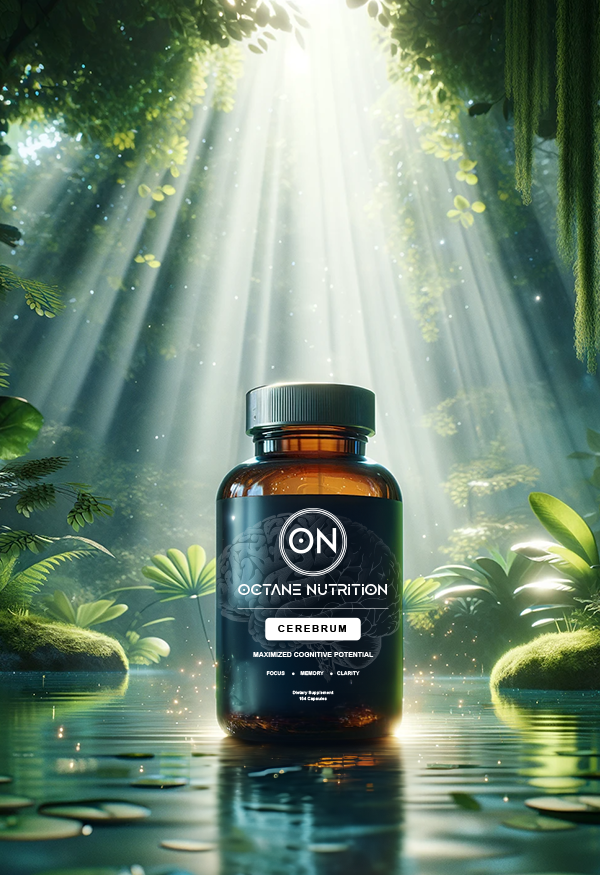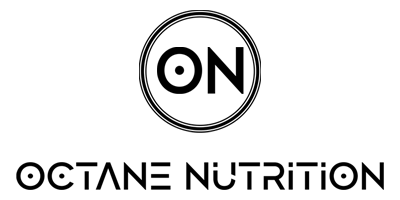Your Cart is Empty
FREE SHIPPING!
FREE SHIPPING!
The Role of Diet and Supplements in Supporting Brain Health
5 min read

Introduction
The brain is a remarkable and complex organ responsible for controlling our thoughts, emotions, memory, and overall wellbeing. Maintaining optimal brain health is crucial, especially as we age, to prevent cognitive decline and ensure that we can continue to function at our best. A well-balanced diet and targeted supplementation can go a long way in providing essential nutrients to support brain health. In this blog, we will explore the critical nutrients necessary for maintaining cognitive function and the important role that diet and supplements can play in supporting brain health.
Essential nutrients for brain health
Omega-3 fatty acids
Sources of omega-3s: These essential fatty acids are predominantly found in fatty fish like salmon, mackerel, and sardines, as well as plant-based sources like flaxseeds, chia seeds, and walnuts.
Benefits for brain function and cognitive health: Omega-3 fatty acids, particularly EPA and DHA, are critical for maintaining brain cell structure, reducing inflammation, and supporting memory and overall cognitive function.
B vitamins
Specific roles of B1, B6, B9, and B12 in brain health: These B vitamins are crucial for the proper functioning of the brain and nervous system. They play a role in neurotransmitter synthesis, energy production, and even DNA synthesis in brain cells.
Food sources and supplementation: B vitamins can be found in a variety of foods, such as whole grains, legumes, animal proteins, and dairy products. In some cases, supplementation may be necessary to meet daily requirements, particularly for vitamin B12.
Antioxidants
Role in combating oxidative stress: Antioxidants help protect brain cells from the harmful effects of oxidative stress and inflammation, which can damage brain tissue and impair cognitive function.
Foods high in antioxidants: Incorporating plenty of antioxidant-rich fruits and vegetables into your diet can benefit brain health. These include berries, leafy greens, tomatoes, and citrus fruits.
Choline
Importance in brain function and memory: Choline is an essential nutrient for brain health, playing a critical role in the synthesis of acetylcholine, a neurotransmitter involved in memory and cognitive function.
Food sources of choline: Choline can be found in high amounts in foods like eggs, liver, and soybeans.
A brain-healthy diet
A well-balanced diet rich in essential nutrients is pivotal in supporting brain health:
Emphasis on whole, unprocessed foods: Focus on consuming nutrient-dense, minimally processed foods, such as fruits, vegetables, whole grains, lean proteins, and healthy fats.
Consumption of fruits and vegetables rich in antioxidants and essential nutrients: Aim to include a variety of colorful fruits and vegetables in your diet, as they provide vital vitamins, minerals, and antioxidants that contribute to brain health.
Incorporation of healthy fats, including omega-3 fatty acids: Include sources of healthy fats, like fatty fish, nuts, seeds, and avocados, to provide omega-3 fatty acids and other essential fats that support brain function.
Lean protein sources and their role in neurotransmitter production: Consume lean protein sources, such as poultry, fish, legumes, and dairy products, to provide essential amino acids required for neurotransmitter synthesis.
Minimizing sugar and refined carbohydrates: Limit sugar and refined carbohydrates, which can contribute to inflammation and negatively impact cognitive function.
Supplements for brain health
Supplements can be a valuable addition to your diet, ensuring that you receive adequate essential nutrients for optimal brain function:
Omega-3 supplements
Fish oil vs. algae-based supplements: Fish oil supplements are a popular source of EPA and DHA, while algae-based supplements provide a plant-based alternative for vegans and vegetarians.
Dosage and potential side effects: Consult a healthcare professional to determine an appropriate dosage based on your needs. Some individuals may experience mild gastrointestinal side effects, such as gas, bloating, or diarrhea.
B vitamin supplements
Different forms and their benefits: Various forms of B vitamins, such as methylcobalamin (B12) or methylfolate (B9), may be more bioavailable and effective for certain individuals based on their genetics.
Dosage and possible side effects: Consult a healthcare professional for personalized dosage recommendations. Most B vitamin supplements have minimal side effects but could cause mild stomach upset in sensitive individuals.
Choline supplements
The benefits of supplemental choline: Choline supplementation might be necessary for individuals at risk of deficiency, such as pregnant women or those on a vegan or vegetarian diet.
Dosage and potential side effects: Consult a healthcare professional for personalized choline dosage guidelines. Overconsumption of choline can lead to gastrointestinal discomfort or a fishy body odor.
Additional brain health supplements
Phosphatidylserine: Supports neurotransmission and may improve cognitive function and memory retention.
Acetyl-L-carnitine: Enhances energy production in brain cells and has potential neuroprotective effects.
Ginkgo Biloba: Promotes healthy cerebral blood flow, potentially contributing to improved cognitive function.
Lion's Mane Mushroom: Known for its neuroprotective and cognitive-enhancing properties.
Bacopa Monnieri: An adaptogenic herb traditionally used to improve memory and reduce anxiety.
Rhodiola Rosea: An adaptogen that can help combat stress, reduce fatigue, and improve focus.
CEREBRUM - The Ultimate Brain Health Supplement
CEREBRUM is the ultimate brain health supplement, it contains a comprehensive nootropic formula that combines all the essential ingredients mentioned above into one powerful blend. Designed to support cognitive function, memory, focus, and overall brain health, CEREBRUM is your all-in-one solution to fuel your mind, leaving you ready to conquer your day, and keep your brain sharp as you age.
Customizing your diet and supplement regimen
As individual needs and circumstances vary, it is crucial to tailor your nutrient and supplement intake to suit your unique requirements:
Tailoring your nutrient and supplement intake to personal needs: Consider personal factors such as age, lifestyle, and pre-existing health conditions when determining the optimal combination of nutrients and supplements for your brain health.
Consulting with a healthcare professional or nutritionist to optimize brain health: Seek guidance from a qualified professional to help you develop a personalized diet and supplement plan that best supports your cognitive function and overall wellbeing.
Adjusting diet and supplement intake based on age, lifestyle, and health status: Reevaluate and modify your dietary and supplement regimen periodically to account for changes in your life circumstances, health status, or emerging research on brain health.
Lifestyle factors that can impact brain health
Factors beyond diet and supplements also play a significant role in maintaining optimal brain health:
Sleep and its influence on cognitive function: Prioritize getting sufficient sleep each night to support memory consolidation, learning, and overall cognitive function.
Exercise and the benefits for brain health: Engage in regular physical activity to promote neurogenesis, the creation of new brain cells, and enhance blood flow and oxygenation in the brain.
Stress management and its relationship with brain health: Develop healthy stress management techniques - such as mindfulness, meditation, or yoga - to reduce the harmful impact of chronic stress on brain function.
Mental stimulation and cognitive training: Participate in activities that challenge your cognitive abilities to keep your brain sharp and agile, such as puzzles, educational courses, or learning new skills.
Conclusion
A well-balanced diet rich in essential nutrients, paired with targeted supplementation, forms the foundation of optimal brain health. By customizing your diet and supplement regimen and adopting healthy lifestyle habits, you can create an environment for maintaining cognitive function and overall wellbeing. Prioritize brain health by considering the incorporation of brain-boosting nutrients and supplements into your daily life, ensuring that your most critical organ is provided with the support it needs to perform at its best.
Leave a comment
Comments will be approved before showing up.

Just arrived? Get 10% off your first order!
Be the first to discover our latest products and enjoy 10% off when you sign up for our newsletter today.
